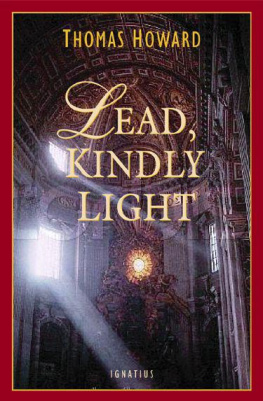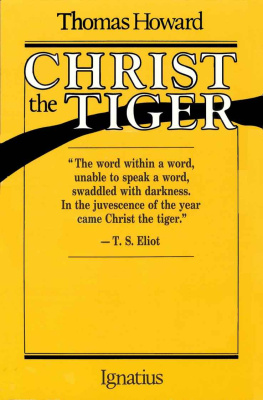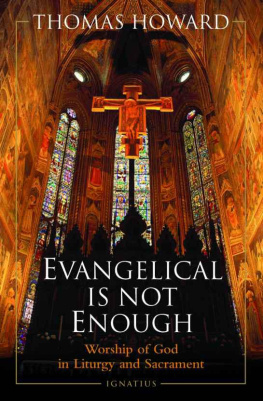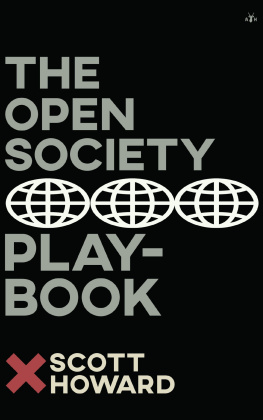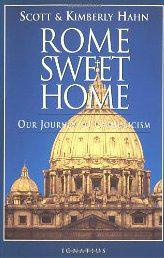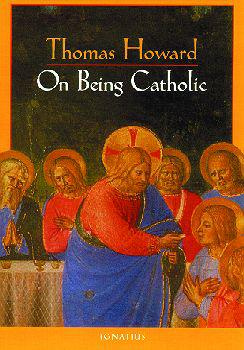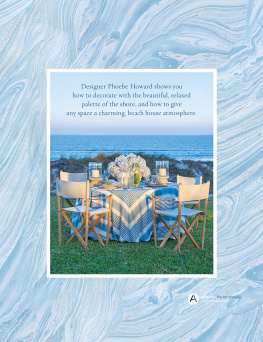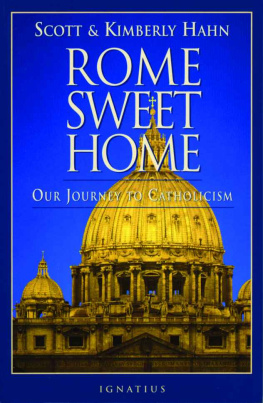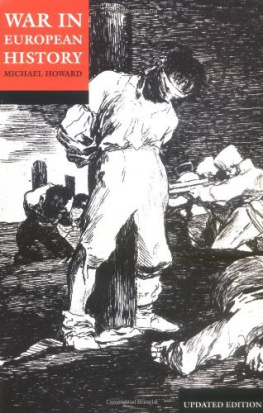LEAD, KINDLY LIGHT
THOMAS HOWARD
Lead, Kindly Light
My Journey to Rome
IGNATIUS PRESS SAN FRANCISCO
Original edition published 1994 by
Franciscan University Press, Steubenville
1994 by Thomas Howard
All rights reserved
New edition printed by permission of Thomas Howard
Cover art: St. Peters Basilica
Owen Franken/CORBIS
Cover design by Riz Boncan Marsela
New edition 2004 by Thomas Howard
Published in 2004 by Ignatius Press, San Franisco
ISBN 1-58617-028-7
Library of Congress Control Number 2004103525
Printed in the United States of America
CONTENTS
by Father Richard John Neuhaus
FOREWORD
In this marvelously engaging remembrance, Thomas Howard admits to being nervous about comparing his experience to that of John Henry Cardinal Newman, lest that seem presumptuous. Not to fear. I expect that everyone making the journey to Romeor at least everyone given to serious intellectual inquiryfinds himself checking the theological and spiritual map so carefully drawn by Newman. Even those who do not consult the map along the way may discover upon reaching their destination that Newman understood their journey better than they themselves. Certainly that is true in my case, and I gather it is true for Dr. Howard. Although there is such a trusty map, each of us must, with great difficulty and frequent doubt, make the journey on his own. Only in retrospect do we recognize fully that we were never, not even for one step along the way, on our own.
Howard is keenly aware that there are many reasons why one might become a Catholic, some of them very attractive reasons. But he knows that the only consideration that will stand up when the foundations are shaken [is] whether something is true or not. Is the Catholic Church what she claims to be? If the answer is yes, then that answer changes the question. The question is no longer Why should I become a Catholic? but Why am I not a Catholic? When, after many years of wrestling with it, I could no longer answer that new question in a manner convincing to mysel for others, I became a Catholic. Becoming a Catholic is not a matter of preference but of duty freely embraced. And, with Dr. Howard, I must add, joyfully embraced.
According to the Second Vatican Council, the Church of Jesus Christ subsists in a unique way in the Catholic Church. She is the most fully and rightly ordered expression of Christs Church through time. The Catholic Church readily recognizes that the saving grace of God is to be found also outside her boundaries. Indeed she teaches that all who are baptized in the name of the Father, Son, and Holy Spirit are truly but imperfectly in communion with the Catholic Church. For the non-Catholic Christian, becoming a Catholic is the completion of what he already is. All the grace and truth of God to be found anywhere, says the Council, gravitates toward unity with the Catholic Church. Dr. Howard as a Fundamentalist Protestant and then an Anglican, and I as a Lutheran, knew much of the grace and truth of God. In becoming Catholic, nothing of this is rejected; all is fulfilled.
With Dr. Howard I can attest that one of the great liberations experienced in becoming a Catholic is no longer having to answer the question Why am I not a Catholic? Many non-Catholic Christians, especially among Anglicans and Lutherans but not only there, insist that they are catholic; it is just that they are not Roman Catholic. I have considerable sympathy for that position, having insisted upon it myself for some thirty years. But, finally, being catholic is not a matter of being very catholic; it is a matter of being Catholic. Everything authentically catholic gravitates toward uppercase Catholic. Being catholic is a matter of ones theological position, historical consciousness, and sacramental sensibility; but, after all is said and done, it is also and necessarily a matter of what church one belongs to.
A Lutheran pastor and distinguished academic who was recently received into the Catholic Church wrote me: Since I was a theological student I have considered myself a catholic Christian. Like you, I traveled under the banner called evangelical catholic. In recent years, however, I began to realize that I was living in a church of my imagination. Newman, too, strove valiantly to convince himself and others that he belonged to a catholic church, only to be compelled to recognize that the Anglicanism of his theological imagination was a paper church, that the only way to belong to a catholic church is to belong to the Catholic Church. Some churches are in important ways more catholic than others, but the catholic Church is the Catholic Church. At least that is the claim, and everything turns on whether it is true.
A great strength of Lead, Kindly Light is that the author does not blink at all that is unsatisfactory in the Catholic Church today. There is so much that is unsatisfactory; there always has been and there always will be until the final coming of the promised Kingdom of God. I confess to missing the more elevated liturgical language and, most painfully, the great hymnody that I knew as a Lutheran. Dr. Howard has his own list of thoroughly justified discontents with contemporary Catholicism. But all that fades into relative insignificance by comparison with all that is gained in becoming a Catholic. In any event, the point is not whether I prefer being a Catholic, although I do. The point, as Thomas Howard rightly insists, is whether something is true or not.
FATHER RICHARD JOHN NEUHAUS
On Being Branded an Expatriate
To move from one religious neighborhood to another is to lay oneself open to all sorts of speculations from the bystanders. He was swept away emotionallythis if one has made ones move in the flush of ardor that suffuses various revivalist options, say; or He was looking for a dignity and sublimity in worship that seemed missing in his erstwhile worldthis if one goes from a rustic conventicle to one of the liturgical churches, most especially the Anglicanism that is so often borne to us on the thin notes echoing amongst the arches of the chapel at Kings College, Cambridge; or He was the type who needed authoritythis if one becomes a Catholic.
There is often a great deal of truth in these remarks. Indeed, one may have been swept away, or may have yearned for sublimity, or may have looked earnestly for authority. But to point that out is to leave unasked, much less unanswered, the question as to whether the move was ill conceived, or was at bottom made in obedience to light having been cast on ones itinerary. It is impossible, of course, to settle that question simply on the apparent merits of the case itself. The bystanders, most of them, will judge the matter according to views that they already hold, and go on about their business. A few may be bemused enough to undertake some scrutiny of their own notions.
At the age of fifty I was received into the Roman Catholic Church. The move occurred at the hither end of an itinerary that had begun for me in the trusty Protestant Fundamentalism of the 1930s and 1940s and had taken me thence through Anglicanism and eventually to the threshold of the one, holy, catholic, and apostolic Church. Such a sequence is far from being unprecedented: Cardinal Manning and Cardinal Newman, in the nineteenth century, followed not altogether dissimilar routes, as did Monsignor Ronald Knox in the twentieth century. To adduce these worthies is to place oneself in company so august that any analogy between ones own pilgrimage and theirs seems grotesque. I would venture only the point that dwarfs can follow in the footsteps of giants, albeit laboriously.
My Roots
I say the Fundamentalism that formed my religious nurture was trusty. By that I would wish to distinguish it from the various manifestations of popular salvationism and biblical literalism that often decline into tatterdemalion customs and manners. We all have images of shouting, sweating stump preachers; or of ropy-necked women with their hair skinned back into a knot, bawling hymns on street corners to the accompaniment of harmoniums and tambourines; or of Sunday night chapels in dingy streets where the lower classes clap their hands, wave their arms, and kneel at the rail to roar prayers into the ears of Heaven.

